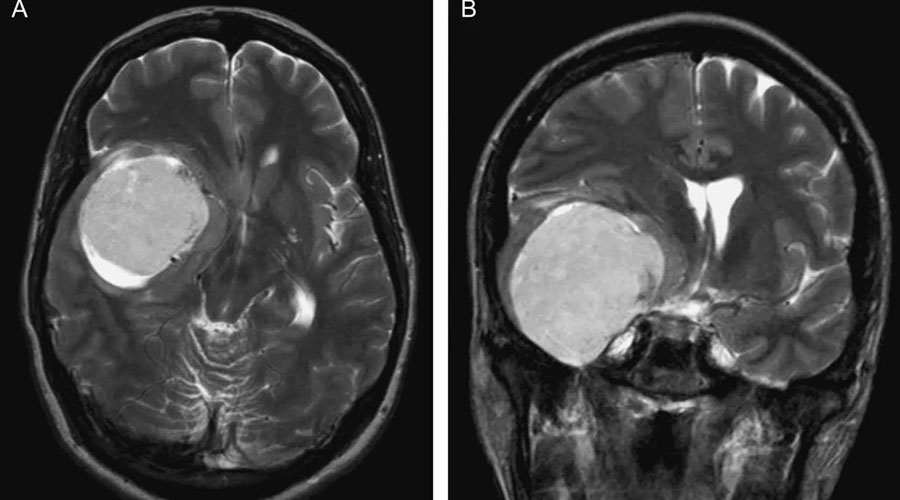
Metastatic Brain Tumors
Tumors that spread to the brain from a primary neoplasm located in other organs of the body are referred to as metastatic brain tumors. They are among the most common intracranial brain tumors encountered by physicians. These tumors are a common complication of systemic cancers and an important cause of morbidity (rate of disease) and mortality (death) in patients.
Risk Groups
Virtually any systemic malignancy can metastasize to the brain, but there are some that have a greater proclivity to do so. Melanoma has a tendency to metastasize to the brain. Other malignancies such as lung, breast, renal and colon cancers are also frequently encountered. Metastatic brain tumors tend to be more common in adults than in children and occur in men and women with equal frequency.
Some differences are seen in the types of primary malignancies responsible for the brain metastasis in the two genders. Lung cancer is the most common source of brain metastasis in males, whereas breast cancer is the most common source in females.
Treatments
Three critical components of managing patients with metastatic brain tumors are non-chemotherapeutic and chemotherapeutic drugs, surgical techniques to remove the tumor while avoiding any brain damage or injury and radiation.
- Non-chemotherapeutic drugs are given to relieve pain such as a headache, control epilepsy and diminish edema of the tumor. Chemotherapeutic drugs can be given to attack and kill cells that divide rapidly, such as cancer cells. Also, chemotherapy can treat the entire brain while treating multiple cancer sites simultaneously.
- Surgery is an important part of the management for some patients with brain metastasis. Increasing sophistication in neurosurgical techniques, precise navigation systems with intraoperative MRI and improved anesthetic techniques allow neurosurgeons to remove metastatic brain tumors with minimal or acceptable morbidity and with almost no risk of death or mortality. This not only provides tissue for diagnosis but also improves control of the cancer and facilitates the use of additional treatments in the brain. It also allows the oncologist to continue additional treatments to control the systemic disease. Surgery is performed when the treating physician determines that it is likely to lead to greater relief of symptoms than might be achieved by other treatments and possibly extend survival.
- Radiation is also an integral part of managing patients with metastatic brain tumors. Like chemotherapy, radiotherapy can be given as whole brain radiotherapy (WBRT) or in fractioned doses. If there are less than four small (generally less than three centimeters in diameter) tumors, then radiation can be administered in the form of precise, focused beams that target the tumor while sparing the surrounding brain.
Radiation may also be administered following surgical removal of the tumor to further kill any residual malignant cells that may be located within the tumor resection bed. This physical form radiation is known as stereotactic radiosurgery. This treatment is delivered by sophisticated machines in the hands of an experienced neurosurgeon and radiation oncologist with careful input from a physicist. Its main advantage is its ability to treat lesions that are not easily treated by surgery. Also, it is noninvasive, has fewer risks and results in a shorter hospital stay. When there are more than four intracranial metastatic tumors, surgery or stereotactic radiosurgery have a lesser role in treatment. It is felt that more global brain radiation treatments may be better suited for these situations. WBRT is administered in fractions over a course of two the three weeks building up to the maximal and optimal effective dose. Administering the radiation in small fractions each day allows the normal brain to recover while tumor cells are killed.
- Other types of treatment may be an option as well. New trials are being performed to use gene therapy for treatment of metastasis. However, gene therapy for brain metastasis is still in its infancy.



